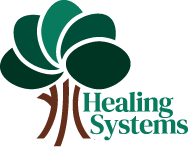Interventions for Trauma
Intervention to support healing for people who have experienced trauma
In the first few months after exposure to a traumatic event, most people will experience a stress response, such as the ones listed below. These symptoms often go away with support and time.
If these negative effects last longer than a few months, then that could be a sign the person is experiencing something more serious. They might be experiencing a trauma-related mental health condition, such as Post-Traumatic Stress Disorder (PTSD).
If this is the case, then they may need mental health services and support to heal. Fortunately, there are many effective treatments to help people who are facing these symptoms.
Here is a list of common reactions to trauma from the National Center for PTSD.
Common responses to traumatic events:
- Feeling hopeless about the future
- Feeling distant or detached from others
- Inability to concentrate
- Being jumpy or easily startled
- Always feeling on guard and alert
- Having upsetting dreams or memories
- Experiencing problems at school or work
- Avoiding things related to the event (people, places, etc.)


Common physical reactions:
- Upset stomach, trouble eating, or overeating
- Difficulty sleeping, generally feeling fatigued
- Pounding heart, rapid breathing, feeling shaky
- Sweating
- Headaches
- Difficulty keeping up routine health care, exercise, diet
- Increased use of alcohol, drugs, or smoking
- Current/ongoing medical problems getting worse
Common emotional reactions:
- Feeling nervous, helpless, scared, or sad
- Feeling shocked, numb, or unable to feel love or joy
- Being irritable or having angry outbursts
- Feeling easily upset or agitated
- Experiencing self-blame or negative thoughts about yourself or the world
- Feeling unable to trust others, getting into fights, or trying to control everything
- Feeling withdrawn, rejected, or abandoned
- Feeling detached, not wanting intimacy

For more information on common reactions to trauma, visit the National Center for PTSD.
If a reaction to a traumatic event causes problems that get in the way of everyday life, relationships, or other important things, then it may be helpful to get support. If this is a concern for you or someone you care about, talk to a doctor or mental health professional to learn about what support might help.
Resources for support in your area:
- Find therapists in Maryland who help people cope with the impact of trauma. Use the filters to find specific therapy types in your area.
- In Maryland, dial 211 to be connected to services, or visit the 211 website to find the right services.

